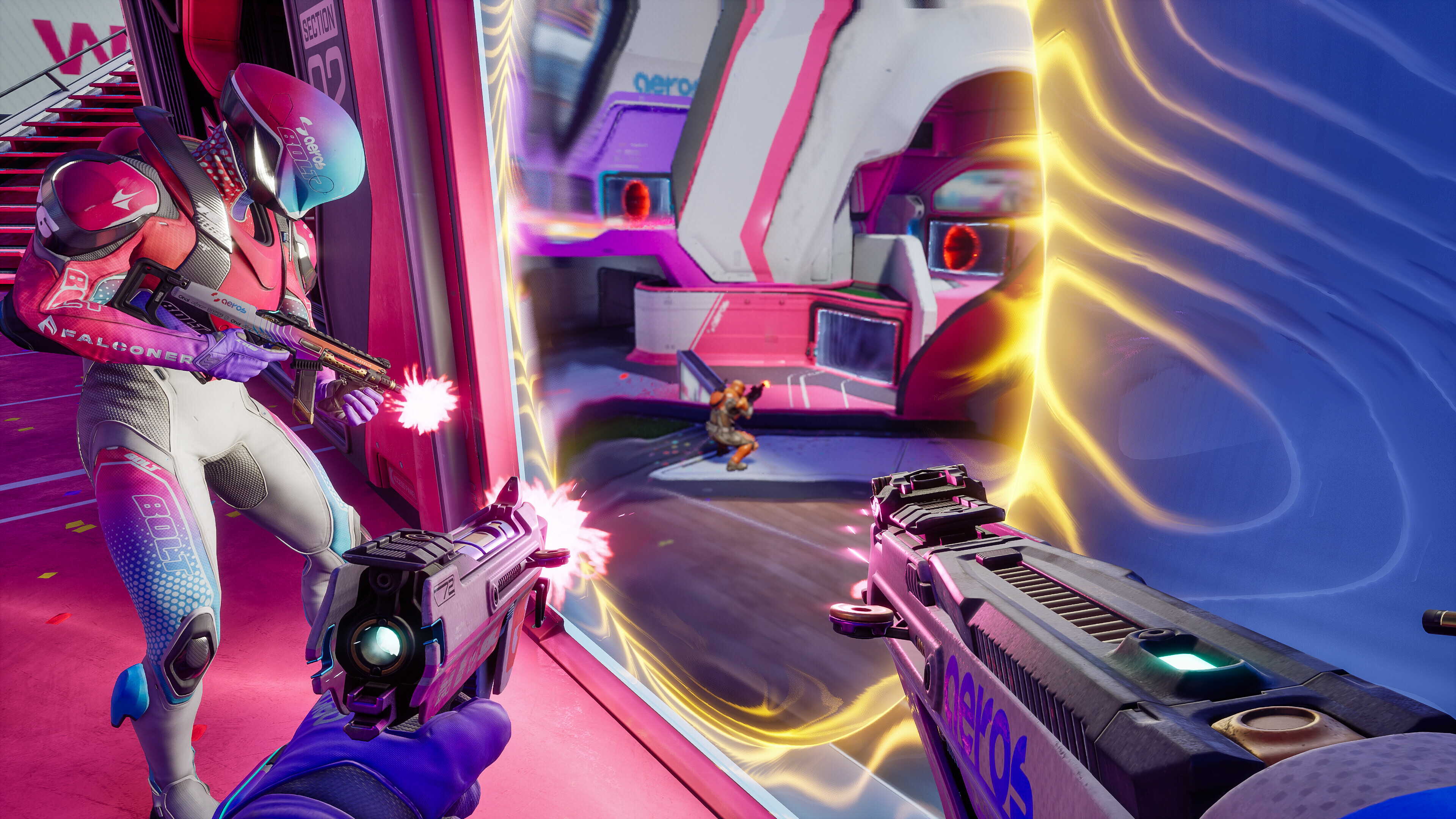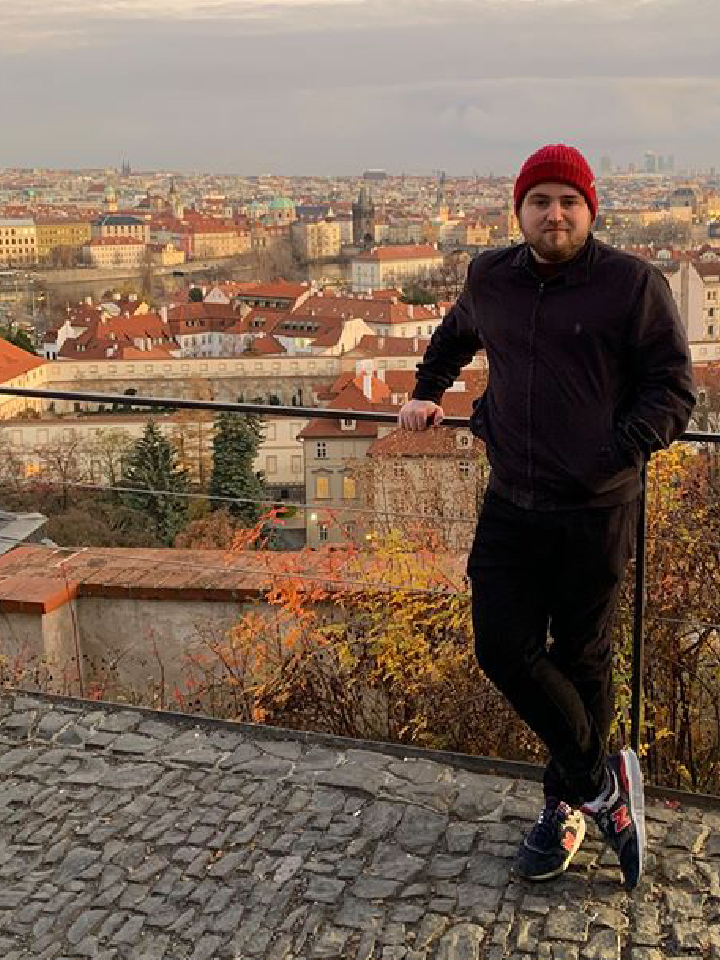Splitgate 2 is faster and more complex, but portals aren't the star of the show anymore
Factions, loadouts, abilities, and perks make the once-simple shooter much more enthralling
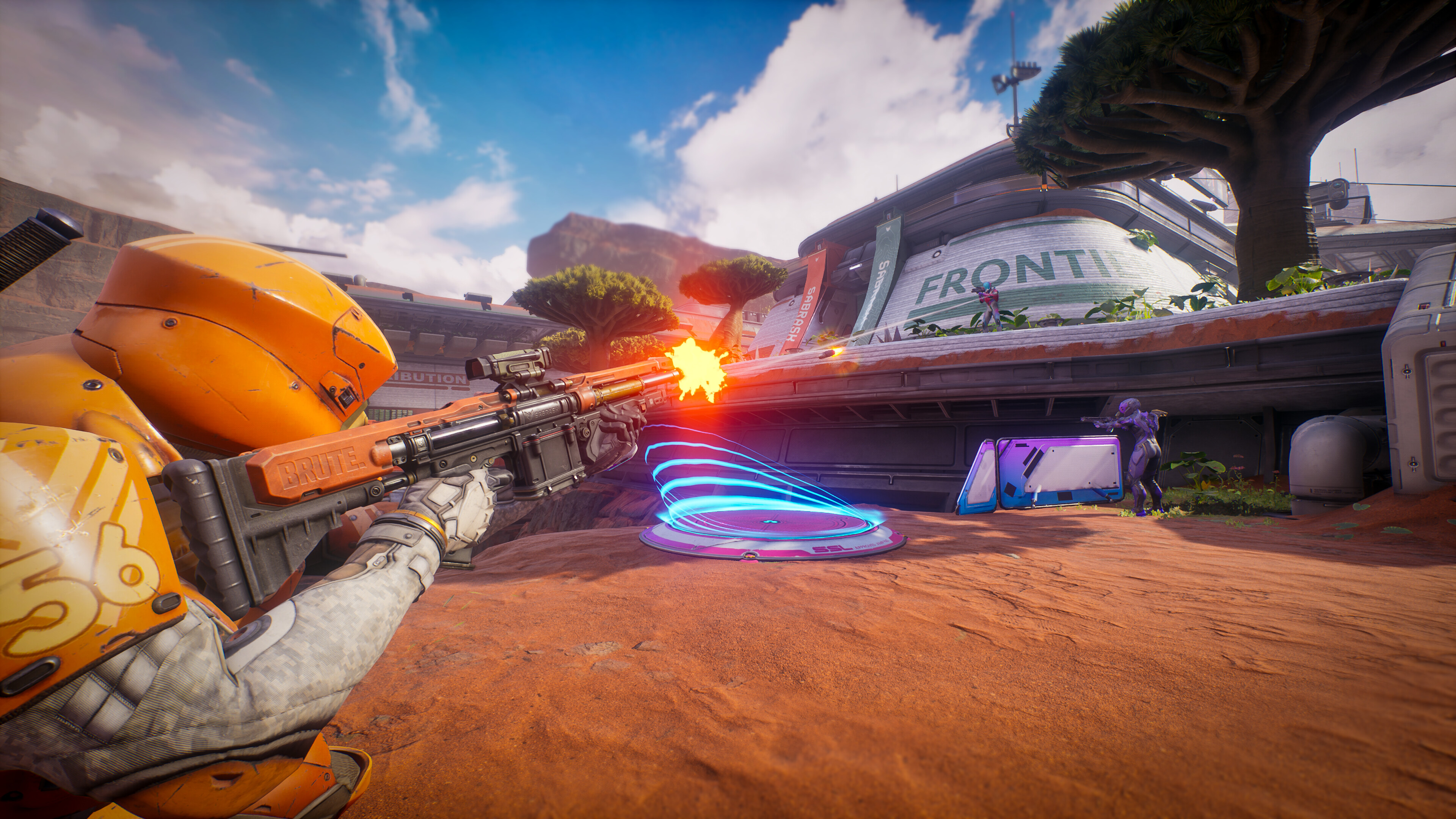
The original Splitgate was such a simple concept: Halo met Portal to spawn a multiplayer shooter with as much emphasis on clever portal placement and map knowledge as there was gunskill and accuracy. How had no game tackled this idea before? However, as many online multiplayer games tend to do, it quickly lost the majority of its players – from peaking at 68k in August 2021 to just 5k by November, declining even further since. So 1047 Games went back to the drawing board. Relying solely on the moment-to-moment combat hadn't made for a worthwhile lifespan, so what could do the job?
Introducing Splitgate 2, which takes the novelty of portals in a first-person shooter and actually places less importance on them, thanks to the introduction of faction abilities, loadouts, perks, attachments, and more. As a result, the portals are no longer the star of the show, merely another asset in each player's array of tools.
Three factions, one winner
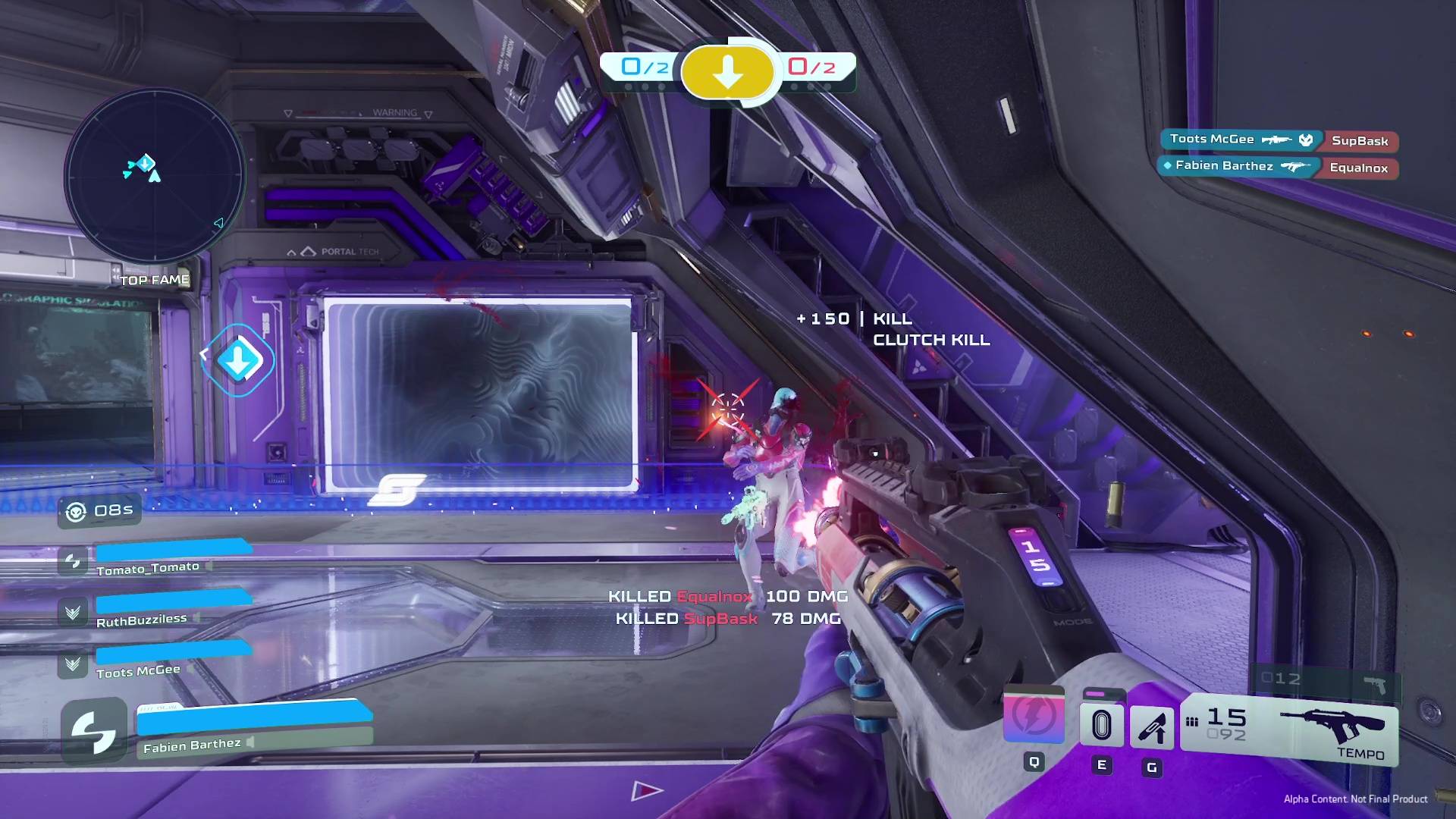
Factions are the biggest new addition to shake up the core mechanic. Their purpose is to provide an ability you can use no matter what loadout you're running, along with a perk that affects your teammates too, known as a 'team trait'. First up is the Aeros faction, who are all about speed. Well suited to run-and-gun players, of which there will be many thanks to the faster pace of the action now, Aeros' Rush ability grants faster movement, quicker reloading, and a health boost all in one. Not to mention a team trait that lowers ability cooldowns.
Then you have the Meridian faction who use energy weapons and can heal teammates, all while providing intel. The Hypersight ability reveals enemies through walls – and in its current state, it has an impressively large radius – while the Wellness trait regenerates health faster. Finally, the Sabrask faction are slightly slower and rely even less on portals, but possess more traditional firepower. Their ability is a transparent barrier – you can shoot through it but enemies can't – while the passive simply means you and your teammates spawn with more ammo.
The differences between each faction are subtle enough that it doesn't dramatically change the experience – this isn't a hero shooter – but they are impactful to the point where you'll need to change your playstyle and frame of mind. Aeros players can be more aggressive, for example, thanks to their speed and healing on the fly, while those who opt for a Meridian loadout can take on either a recon or support role.
Long live Halo 3
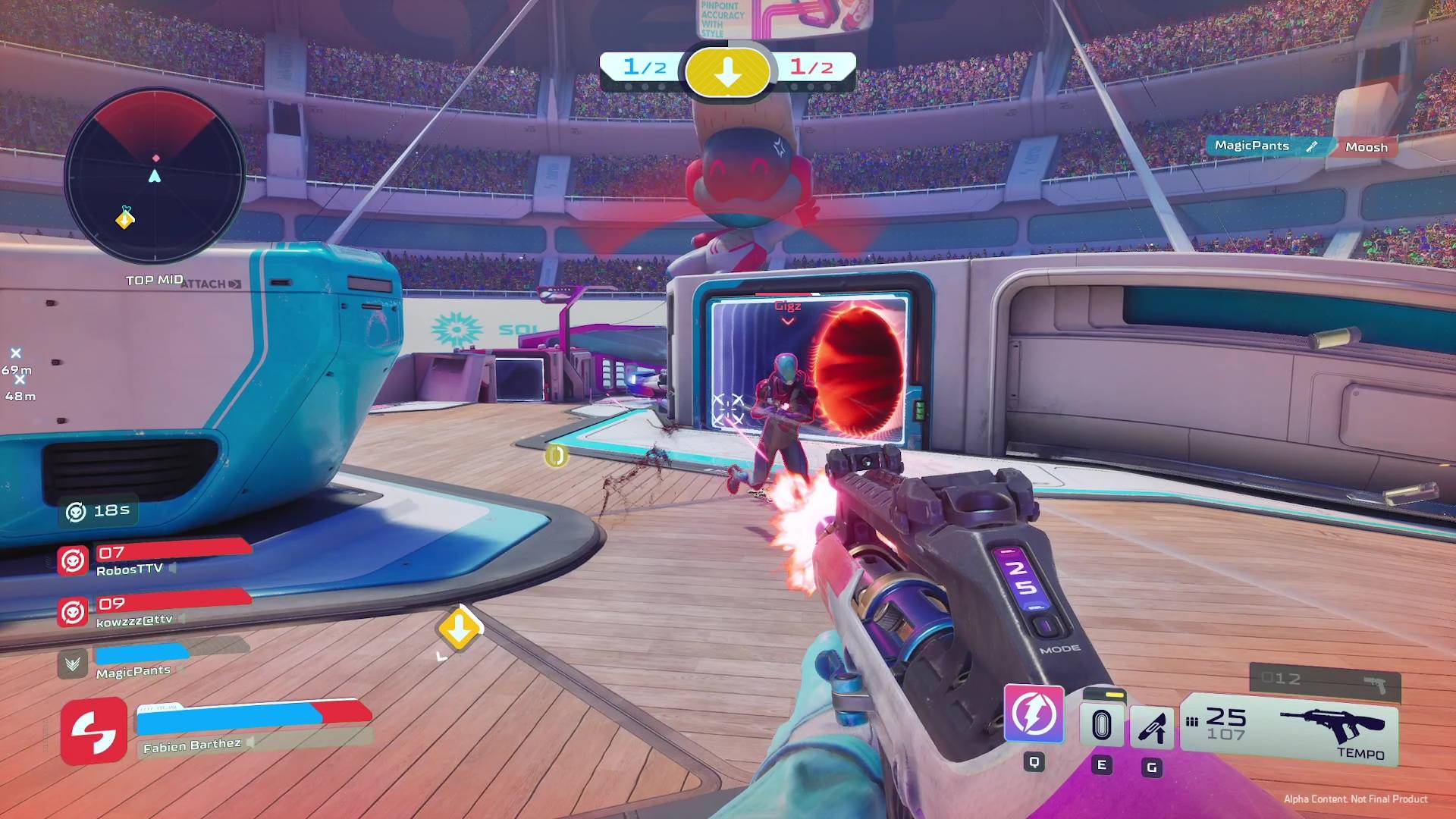
The Halo inspirations are still worn on the sleeves of Splitgate 2 though, because weapon choices are limited. Assault rifles, burst rifles, shotguns, and SMGs are basically your lot – though you can find power weapons that spawn periodically on the map, including a more powerful assault rifle and a rocket launcher. Imagine Halo 3 with faster movement and a much quicker time-to-kill and you've pretty much envisioned combat in Splitgate 2.
One significant factor in play here though is that all weapons have the same accuracy no matter how fast you're moving. Aiming down the sights doesn't exist either; you can zoom in but it only magnifies your target, rather than making your weapon more accurate as you'd find in most other shooters. Players who can master the art of target tracking while flying through the air - or vice versa, skeet shooting style - will quickly rise to the top. Combine that with the fact most assault and burst rifles have very little recoil and this becomes a game with a very high skill ceiling.
Sign up to the GamesRadar+ Newsletter
Weekly digests, tales from the communities you love, and more
Of course, portals are still a major part of that – some of the flashiest, most skilful plays come from those who know how to use them effectively – but thanks to abilities and factions, players are no longer one-trick ponies. Each faction comes with unique gadgets, such as the throwable Shock Disc available to Aeros players that can stun opponents on contact or close portals. Meridian players have access to a Time Dome, which speeds time up for yourself and allies, but slows it down for enemies, while those of you playing Sabrask can deploy a transparent shield that you can shoot through, but your enemies cannot. Splitgate 2 isn't as barebones as it once was, which makes for much more chaos, but it also gives players who aren't as portally capable other ways to compete.
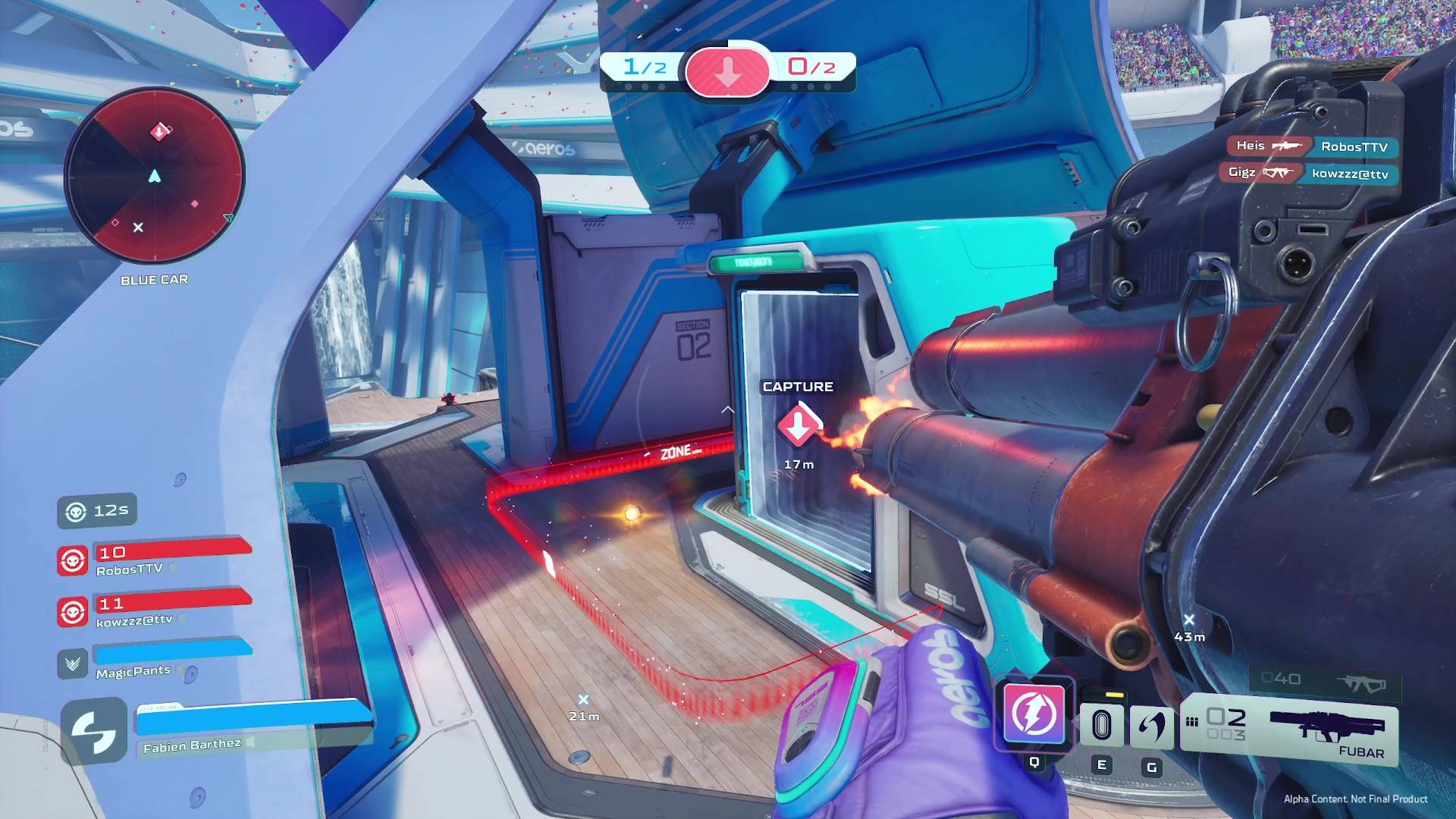
Ian Proulx, creative director on Splitgate 2, explains that 1047 Games didn't want Splitgate 2 to solely focus on attrition. In an effort to make deaths actually mean something rather than locking us into a cycle of respawning-killing-dying, the longer a match goes on for, the longer the wait to respawn. It starts off at just five seconds, increasing considerably to 20+ seconds towards the end of the match. This can be reduced by your living teammates getting kills though, as each elimination on an opposing player will knock three seconds off the timer.
It's a small change, but it's one that will help to distance it from the other shooters offering a very similar experience. The same goes for the slight tweaks to game modes: Team deathmatch isn't just one long match anymore, it's instead broken up into a best of five rounds scenario, where each round is the first team to get 15 kills. Hotzone is essentially king of the hill, also in a best of five rounds situation, where the first team to capture two hills will win the round.
All of this is to say Splitgate 2 is fun. It isn't rewriting the rules of modern FPS games like the first one did, where the portals were the whole point of the game, but it feels like a more complete package now. The foundation is far stronger to build upon for the future, and come the full launch in 2025, we could have a hot contender for one of the best FPS games on our hands.
In the wait for Splitgate 2, here are the best games like Halo to scratch a similar itch.
Give me a game and I will write every "how to" I possibly can or die trying. When I'm not knee-deep in a game to write guides on, you'll find me hurtling round the track in F1, flinging balls on my phone in Pokemon Go, pretending to know what I'm doing in Football Manager, or clicking on heads in Valorant.
